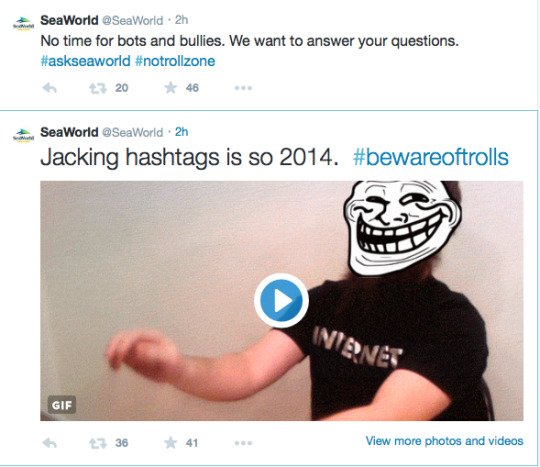
SeaWorld has been suffering brand damage (and slower sales) ever since the release of the movie, Blackfish. In an attempt to reconnect to modern audiences, the Florida-based company launched a Twitter campaign with the hashtag #AskSeaWorld last week. The premise: give the public a direct line to ask questions they may have about SeaWorld and, in turn, allow SeaWorld to give their side of the story and in more positive light. The result: trolls, hashtag hijacking, and thousands of negative tweets.
Unfortunately, similar to the many McDonald’s failed hashtag attempts (#McDStories, #RonaldMcDonald, #FryFutbol), SeaWorld’s open conversation served to amplify the voices of their opponents. With social media, as in real life, people who are angry about something tend to have loud voices. That correlated to some pretty childish back and forth between groups like PETA and the brand itself.
The question remains: When a brand is in trouble, is it wise to open the floor up to consumers who could possibly tarnish the brand even further? In my eyes, unless your brand has an overwhelmingly reasonable explanation that will sway even some of your biggest detractors, this sort of social media approach may not be the best idea. What other options did SeaWorld have? Because if they were my client, I would consider #NotAskingSeaWorld.
~ Samantha Banner, Account Coordinator, The S3 Agency




